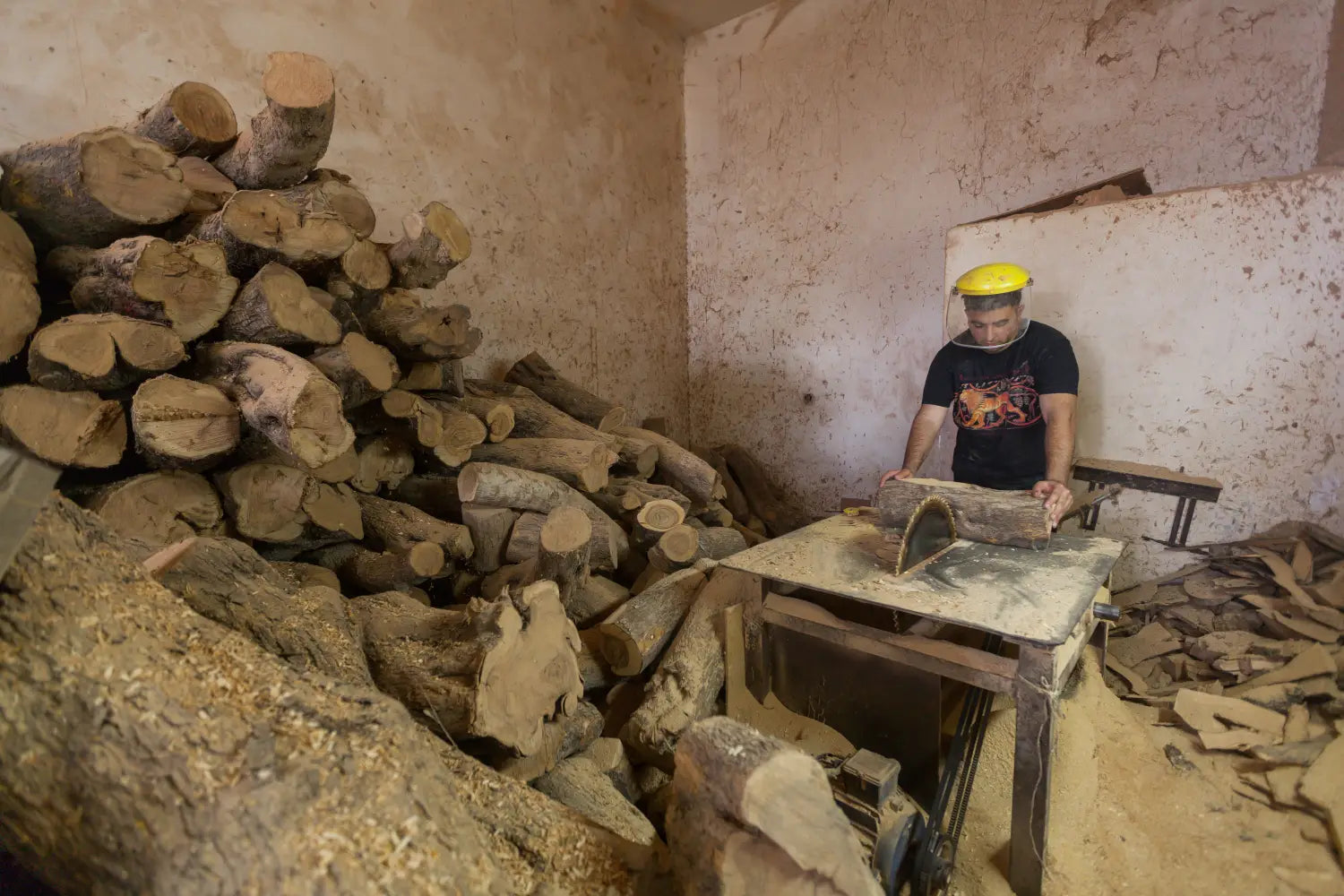Beyond the Olive Wood: The Story They Don’t Want You to Hear

Beyond the Olive Wood: The Story They Don’t Want You to Hear
Walk the stone streets of Bethlehem today and you’ll feel it.
Not just history underfoot or the scent of freshly carved olive wood.
You’ll feel something deeper.
Something quieter.
Like a sacred tradition slowly being silenced.
For generations, Christian families here have carved crosses, rosaries, and nativity sets from trees older than empires. Their hands don’t just shape wood they carry faith. A living heritage.
But now, with fewer pilgrims, fake fair-trade claims, and a market flooded with factory-made replicas, that heritage is slipping into the shadows.
And here’s the part most won’t say out loud:
A lot of those “ethical artisan collectives” that look so good online?
They’re not what they seem.
1. The Shops Are Still There But the Pilgrims Aren’t
Bethlehem used to buzz.
Pilgrims filled the alleys. Workshop doors were wide open, and the clink of carving tools rang like music through the air.
Today?
Many doors are shut. Others are open—but empty.
Silent. As if waiting for prayers that never arrive.
One artisan told me, quietly:
“We still carve. But who are we carving for?”
What happens when the world forgets the hands behind the sacred?
👉 Support real Holy Land artisans here
2. The Truth About “Fair Trade” in Bethlehem
We all want to shop with heart.
We trust words like handmade, fair trade, artisan-made.
But the truth?
Many of these so-called "ethical collectives" are little more than brands with a glossy finish.
They use local faces in their marketing. They say the right things. But when it comes to sharing profits with the very carvers who shape the pieces?
“They put our pictures in their brochures,” one artisan said, “but we don’t see the money. Not even a coin.”
This isn’t just about fairness.
It’s about survival.
And dignity.
👉 Only buy from family-run workshops like Zuluf
3. Fakes Are Everywhere and They’re Winning
You’ve seen them.
Cheap “Bethlehem handmade” crosses on Amazon for $9.99.
They look the part—until you look closer.
No artisan name. No Bethlehem origin. Cold, plastic packaging.
They're factory-made—sometimes continents away.
And while they flood the shelves, real Christian artisans are losing not just their income, but their legacy.
How do you tell the difference?
If it looks too cheap to be sacred… it probably is.
Zuluf includes artisan names and authenticity certificates with every handmade piece.
4. The Disappearance of a Nativity Scene and Why It Matters
Last Christmas, a nativity scene appeared in a major Christian space.
In it, baby Jesus was swaddled in a Palestinian keffiyeh.
Within days it was gone. Quietly removed. No announcement. No conversation.
Some said it was “too political.” Others just shook their heads.
But here’s the real question:
If even Jesus can’t wear the fabric of his homeland,
how long before the people who carve his image are erased, too?
This isn’t politics.
It’s about identity.
It’s about letting local Christians be seen, heard—and remembered.
5. What Ethical Shopping Should Really Look Like
Want to make a difference? It’s simple.
- Ask who made it.
- Ask where it was made.
- Ask how much they were paid.
Look for real names. Real photos. Real families.
Fair trade isn't a buzzword. It's a relationship.
Zuluf is a family-owned Christian workshop in Bethlehem—crafting faith in wood for generations. Long before “handmade” was trendy.
👉 Read their story and shop their verified pieces here
6. If You Care About Faith Support the People Who Live It
This isn’t just about religious items.
It’s about honoring the sacred stories behind them.
Every cross is a prayer in wood.
Every rosary a breath of perseverance.
Every nativity a witness to identity.
Let’s stop letting cheap replicas and slick brands win.
Let’s stand with the hands that carve hope into every piece—hands calloused by tradition, steady with faith.
Final Thought: It’s Not Just a Product. It’s a Legacy.
Next time you hold an olive wood cross or admire a nativity set pause .
Ask yourself :
Was this made by someone who’s walked the streets of Bethlehem?
Or by someone who’s never felt its dust beneath their feet?
Because one will bring something sacred into your home.
The other ?
It’s just wood .














